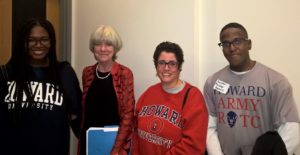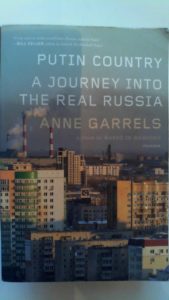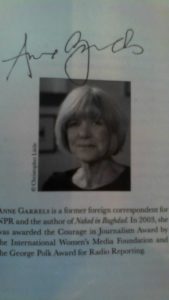Wednesday, May 23, 2012, the Kennan Institute held an event titled “The National Conversation: Putin’s Return & The U.S.-Russian Reset.” Michael Van Dusen, Executive Vice President and COO, Wilson Center, opened the event by remarking how Putin’s reelection had not proved that remarkable. What did prove remarkable was the protests that have taken place following the elections, which have been mostly peaceful. At this point, Sam Donaldson, ABC News correspondent and current President of the Wilson Council, made a cameo appearance, offering his seat to one of the ladies in the overflow crowd.
Following Van Dusen, Zbigniew Brzezinski, former National Security Adviser, delivered a keynote speech. In his speech, he spoke about asymmetries of objective and subjective realities. Putin holds historical and international ambitions and resentments for Russia. He sees the United States as capitalizing on the unfortunate event of the collapse of the Soviet Union. He commented at length on Putin’s designation of the fall of the Soviet Union as the greatest calamity of the twentieth century, seemingly forgetting about various events such as the Second World War and the Stalinist repressions. Furthermore, Putin must be aware that the Russian economy is highly unbalanced, which led to inequalities of wealth that have not created a favorable political position for Russia.
Brzezinski started to discuss the feasibility of what he sees as Putin’s remedy for Russia’s complicated political and economic position: a Eurasian Union, comparable to the European Union in structure but hopefully devoid of the European Union’s tensions. At this point, Brzezinski pointed out that the problem with Putin’s proposal for a Eurasian Union is that no candidates currently yearn for membership in such a Union. The idea lacks appeal to countries that should be natural candidates for such a union, like the Ukraine. Furthermore, Russia faces tensions from several of its neighbors, like Georgia. Meantime, the United States enjoys support from other countries. The United States has found ways to muster coalitions together, a skill which Putin seems to lack at this timed.
These are some examples that show the ways in which asymmetry of objective and subjective reality affects United States-Russia relations. One way in which the reset has helped is that it has allowed for expansion of involvement.
Brzezinski finished his speech by commenting his opinion that Putin may be a political anachronism. He wonders just how much historical depth is there in his regime. He found Putin’s style reminiscent of Mussolini’s, particularly after viewing Putin’s inauguration. The really emerging political actor in Russia is the new middle class which is asserting itself with increasing confidence. One positive outcome of this Putin/Medvedev period is that individual fear is gone for the first time in Russian history. The sense of political jeopardy is now minimal. This does not mean there is not some level of risk of arrest, for instance, but nothing close to the level of political violence characteristic of the Soviet period. Putinism, Brzezinski concluded, with all its asymmetries, is not enduring.
Outside of the substance behind the talk, this part of the event was the academic equivalent of a rock star concert. Zbigniew Brzezinski was involved in so many high level foreign policy decisions that it is hard to imagine our world without his hand in a lot of the major events that have defined the end of the twentieth century. Among the major foreign policy events during his term of office included the normalization of relations with the People’s Republic of China (and the severing of ties with the Republic of China); the signing of the second Strategic Arms Limitation Treaty (SALT II); the brokering of the Camp David Accords; the transition of Iran from an important U.S. client state to an anti-Western Islamic Republic, encouraging dissidents in Eastern Europe and emphasizing certain human rights in order to undermine the influence of the Soviet Union; the financing of the mujahideen in Afghanistan in response to the Soviet deployment of forces there and the arming of these rebels to counter the Soviet invasion; and the signing of the Torrijos-Carter Treaties relinquishing overt U.S. control of the Panama Canal after 1999. Want some fries with that?
After Brzezinski’s keynote address, the event opened up as a discussion among Mr. Brzezinski, David Kramer, President of Freedom House; Nina Khrushcheva, Professor, Graduate Program of International Affairs at The New School; and Blair Ruble, Director of the Wilson Center’s Kennan Institute. Susan Glasser, editor-in-chief of Foreign Policy magazine moderated this part of the event. Blair Ruble, the always gracious and insightful director of the Kennan Institute, commented that Russia’s main weakness at this time was the Russian state’s inability to master modern statescraft. David Kramer then commented that Putin is a hostage to his own corrupt and rotting system, which is a mix of arrogance and paranoia. Nina Khrushcheva remarked that Putin has outlived his potential, and that his system is dysfunctional. Brzezinski jumped in to comment that Putin’s power still relies on intimidation, the army, oligarchs, and the secret police, which gives him continuity but no social enthusiasm for his programs.
The discussants further noted how Putin’s reliance on loyalty has become a weakness, in that he cannot trust people outside of Moscow. Dr. Ruble also commented how Stalin’s legacy cannot be grasped by Americans.
All in all, this was a very stimulating hour and a half of contemplation on the current state of the Russian government, and the implications of Putin’s return to power. And it always is real pleasures to listen to Dr. Ruble go into policy wonk mode. He has that rare mix of breadth and depth of knowledge and experience in the subject area, and a real gift to phrase in a way that is accessible to the general public.
What has proved remarkable in all of the different presentations I have attended during the period leading up to the Russian elections this year, as well as Putin’s re-assumption of the office of President, is the universal skepticism with which his reelection has been met. In spite of some indicators that the Reset Policy started by Secretary of State Hillary Clinton has had some measurable positive outcomes at the foreign policy level,[i] people remain very skeptic about his ability to create enthusiasm domestically among the emerging professional middle class. Journalists also face increasing limitations on their ability to report the news in an accurate manner. It will be interesting to see how this new Putin period plays out.
The other book to which I have returned, now that the madness of correcting finals has finished, is Lidiia Chukovskaia’s Chukovskaia, in her book «В лаборатории редактора,» In page 256, she observes how Samuil Marshak, editor-in-chief of the children’s literature section where she worked, demanded that children’s literature – «вся!» “all of it!”—should be a work of art. The editor’s office should become a place where the fruitful encounter between new material and tradition should take place.[ii] Editing can only be fruitful when it is a work carried in unison with the author. The editor who proves incapable of identifying the feelings and artistic goals of their author is a serious threat to the author’s work.[iii] She equates the whole editing process to an orchestral piece, which must be carefully directed so that all the plays interact in the prerequisite harmonic fashion.
«Да, так и в литературе: терпеливо наклопенные, тонько подмеченные мелочи обогащают воспрятие читателя лишь в том случае, если они вызваны к жизни, подтиняты на поверхность чуством и вся сила чуства служит познанию избранного художника объекта…»[iv]
“And so it is in literature: the patiently accumulated, delicately noted details enrich the reader’s perception only in such cases when they are called to life, lifted to the surface by feelings, and the full force of these feeling serves the interpretation of the subject chosen by the artist…”
The responsibility of mentoring new forms of writing falls particularly on the editor of a young, inexperienced author, who may not himself recognize where his strengths are. Young, inexperienced writers, complain Chukovskaia, often fall into the banalities, clichés, and thus extinguishes the possibility of fresh material and fresh new thought.
One seeming throw-away comment that Chukovskaia makes when speaking about editors is about the nature of tradition. “To say ‘high tradition’ is to say nothing. There are many traditions in literature. Which of them should be recognized as ‘high’ and ripe for innovation, and which have outlived their time…?”[v]
Most of us read necessary reading on a regular basis. We read the newspaper to catch up with the news, to get the latest sports scores, to catch up with Wall Street. Some of us read to fulfill specific needs: programmers read user guides to fix some software bug, diplomats read briefings and dispatches, students read textbooks. Perhaps those of us who attempt to provide readers with materials need to more carefully pay attention to the artistic side of our craft. Innovation is not simply a concept that exists in the field of computer development these days…x
[i] See Ambassador McFaul’s notes to his speech to the Higher School of Economics, http://photos.state.gov/libraries/russia/231771/PDFs/ResetSlides-HSE.pdf
[ii] Лидия Корнеевна Чуковская, «В лаборатории редактора.» Арханьгелск: АОА «ИПП» «Правда севера», 2005, 256



